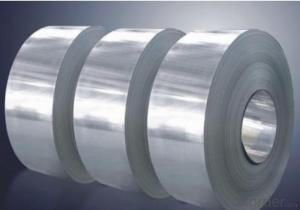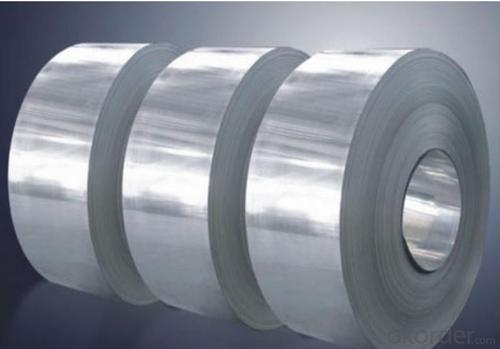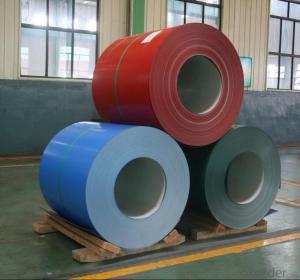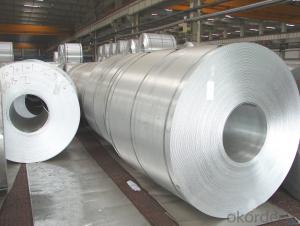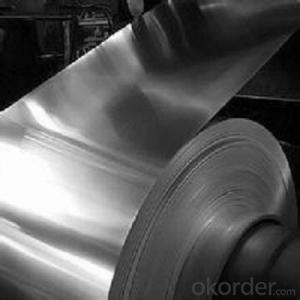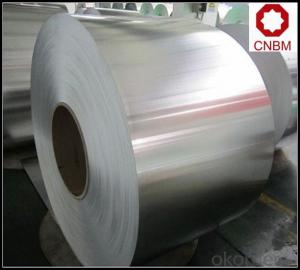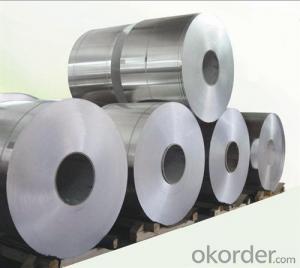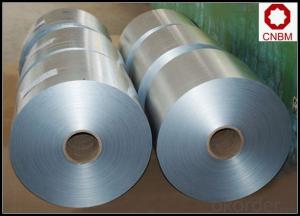Aluminum Coil Anodizing Aluminum Alloy Plates/Coils Series 1/3/5/6/8
- Loading Port:
- Shanghai
- Payment Terms:
- TT OR LC
- Min Order Qty:
- 5 m.t.
- Supply Capability:
- 90000 m.t./month
OKorder Service Pledge
OKorder Financial Service
You Might Also Like
Specification
6083 t651 aluminium alloy plate/coil price
Product Specification
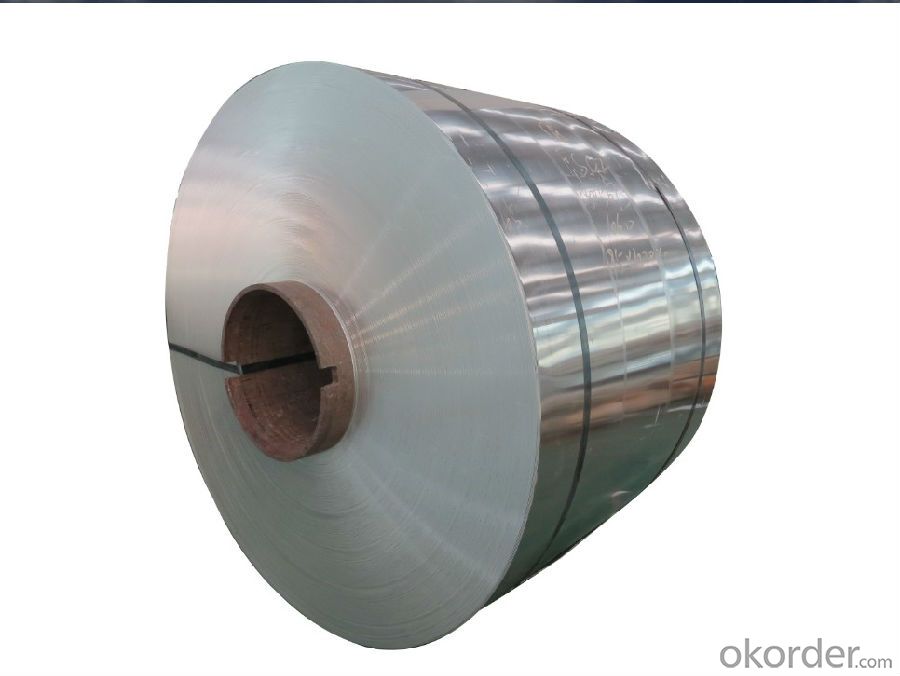
| Alloy Band | 6061, 6063, 6082 |
| Temper | O, T4, T6, T651 and other |
Thickness | ≤170mm |
Width | ≤2200mm |
| Longth | ≤12000mm |
| Application | Automobile, Aviation, Electronics, Mold, Quenched plate, Pre-stretched plate, etc |
| Standards | ASTM-B209. EN573-1, GB/T3880.1-2006 |
| MOQ | 5 tons |
| Payment Term | L/C; T/T. |
| Delivery Time | Within 30 days after receipt of deposit. |
| Notice: We can according to customer requirement offer other different alloy band and state product | |
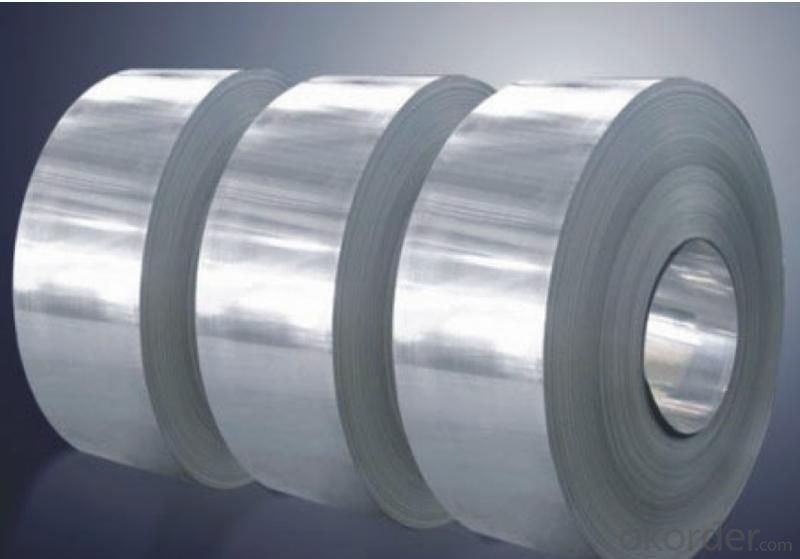
More products for you to choose
We produces and offers a full range of aluminum plate in several alloys to service a multitude of industries. The non-heat treatable alloys of 1000, 3000, and 5000 series are all strengthened by various degrees of cold working, as denoted by the "H" tempers.
The heat treatable alloys of 2000, 6000 and 7000 are such that when subjected to thermal temperatures, they again pronounced strengthening. Hence, tempers are indicated by "T". These alloys are also inventoried in clad form to increase corrosion resistance. All of the aluminum alloys are available in the annealed condition or commonly referred to as "O".
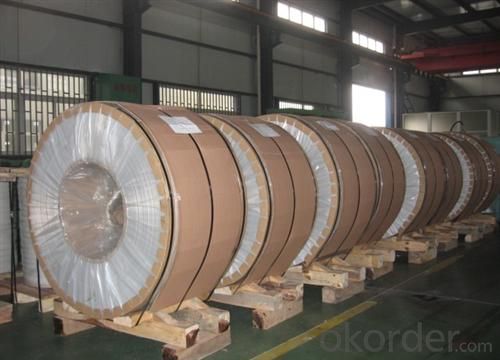
- Q: What are the common cutting and shaping methods for aluminum coils?
- The common cutting and shaping methods for aluminum coils include shearing, blanking, punching, and forming.
- Q: Can aluminum coils be used in food storage facilities?
- Yes, aluminum coils can be used in food storage facilities. Aluminum is a safe and commonly used material for food storage due to its non-reactive properties and resistance to corrosion, making it suitable for maintaining food quality and preventing contamination.
- Q: I'm having trouble with another chem problemAluminum sulfide reacts w/water to form aluminum hydroxide and hydrogen sulfide. Write the balanced chemical equation for this reaction and find how many grams of aluminum hydroxide are obtained from 14.2 g of aluminum sulfide.I already found the balanced equation but I need help on finding how many grams of aluminum hydroxide are obtained from 14.2 g of aluminum sulfide. Can someone please explain how it's done?
- No way!! because of the fact inspite of the bat, the helmet and the shin guards the undergo is plenty larger than a human and is going to basically get mad from the bat and kill you. Nope $800,000 isn't something for that!
- Q: Are there any limitations on the embossing of aluminum coils?
- Yes, there are limitations on the embossing of aluminum coils. The main limitations include the thickness and temper of the aluminum, as well as the complexity and depth of the desired embossing pattern. Additionally, the embossing process may affect the overall flatness and surface quality of the aluminum coil.
- Q: How do aluminum coils contribute to improved indoor air quality?
- Aluminum coils play a crucial role in improving indoor air quality in various ways. Firstly, these coils are commonly used in air conditioning and HVAC systems, which are designed to circulate and filter the air inside buildings. The aluminum coils in these systems help in cooling and dehumidifying the air, reducing the moisture content that can promote the growth of mold and mildew. By controlling humidity levels, aluminum coils prevent the development of allergens and pollutants that thrive in damp environments, thus enhancing indoor air quality. Moreover, aluminum coils are highly efficient heat exchangers, allowing for effective transfer of heat between the air and the cooling or heating system. This efficiency enables HVAC systems to maintain a consistent temperature throughout the building, reducing the need for excessive energy consumption. By using less energy, these systems emit fewer harmful greenhouse gases, ultimately contributing to lower levels of outdoor air pollution and improving the overall air quality. Additionally, aluminum coils are durable and resistant to corrosion, which is essential for maintaining a clean and healthy indoor environment. The corrosion-resistant properties of aluminum coils ensure that there are no metallic particles or rust that can contaminate the air being circulated. As a result, occupants are less likely to inhale harmful particles that can cause respiratory issues and other health problems. Furthermore, aluminum coils are lightweight and often come with a protective coating, making them easier to clean and maintain. Regular cleaning of coils prevents the accumulation of dust, dirt, and other pollutants that may accumulate over time. By keeping the coils clean, the airflow is optimized, ensuring that the air being circulated is free from contaminants and allergens, thus promoting improved indoor air quality. In summary, aluminum coils contribute to improved indoor air quality by reducing humidity levels, preventing the growth of mold and mildew, enhancing energy efficiency, minimizing the emission of greenhouse gases, and maintaining a clean and contaminant-free air circulation system. These coils are an essential component of HVAC systems that play a vital role in creating a healthier and more comfortable indoor environment for occupants.
- Q: This question seeks advice on methods to prevent rust formation on aluminum coils.
- <p>To prevent rust on aluminum coil, ensure proper storage conditions by keeping the coils dry and avoiding contact with moisture. Use protective coatings or sealants that are compatible with aluminum to create a barrier against the elements. Regularly inspect the coils for signs of corrosion and clean them with a non-abrasive cleaner to remove any contaminants. Avoid using harsh chemicals that could accelerate oxidation. Maintain good ventilation in storage areas to reduce humidity, which can contribute to rust formation. Finally, consider using anodizing or other surface treatments that enhance the aluminum's natural resistance to corrosion.</p>
- Q: What is the cost of aluminum coils compared to other metals?
- The price of aluminum coils can change depending on various factors such as market demand, availability, and current economic conditions when compared to other metals. Generally, aluminum is considered to be more affordable in comparison to metals like copper or stainless steel. Due to its lightweight, resistance to corrosion, and excellent thermal conductivity, aluminum is extensively used in different industries. It is the preferred choice for applications in construction, automotive, aerospace, and electrical industries. When compared to copper, aluminum typically has a lower cost per pound. However, it is important to note that copper is highly regarded for its superior electrical conductivity and is often favored in specific applications where electrical performance is crucial. In contrast, stainless steel is generally pricier than aluminum. Stainless steel provides exceptional resistance to corrosion and durability, making it suitable for applications that require high strength and the ability to withstand harsh environments. In conclusion, when considering the cost of aluminum coils in relation to other metals, aluminum is frequently a more cost-effective option. Nevertheless, it is crucial to evaluate the specific requirements and performance characteristics needed for a particular application in order to determine the most suitable metal choice.
- Q: What are the factors that affect the price of aluminum coils?
- There are several factors that can influence the price of aluminum coils. These include the cost of raw materials, such as the price of aluminum ingots, which can fluctuate based on global supply and demand dynamics. Additionally, factors like production and manufacturing costs, energy expenses, transportation costs, and market competition can all impact the final price of aluminum coils.
- Q: Are there any fire safety considerations when using aluminum coils?
- Yes, there are fire safety considerations when using aluminum coils. Aluminum is a highly flammable material, and if not handled and installed properly, it can pose a fire risk. It is important to ensure that the aluminum coils are installed in a way that minimizes the risk of fire, such as using proper insulation and avoiding direct contact with other flammable materials. Additionally, regular maintenance and inspections should be conducted to identify any potential issues or signs of overheating that could lead to a fire. Following fire safety protocols and guidelines, such as having a fire extinguisher nearby and ensuring proper ventilation, can also help mitigate the fire risk associated with using aluminum coils.
- Q: Can aluminum coils be painted or coated?
- Absolutely! It is entirely possible to paint or apply a coating to aluminum coils. Aluminum, being a remarkably adaptable material, can be adorned with a diverse range of finishes to elevate its aesthetic appeal and safeguard it against corrosion. The typical procedure for painting or coating aluminum coils entails cleansing and prepping the surface, administering a primer, and subsequently applying the desired paint or coating. The selection of paint or coating relies on the desired outcome and the specific purpose of the aluminum coil.
Send your message to us
Aluminum Coil Anodizing Aluminum Alloy Plates/Coils Series 1/3/5/6/8
- Loading Port:
- Shanghai
- Payment Terms:
- TT OR LC
- Min Order Qty:
- 5 m.t.
- Supply Capability:
- 90000 m.t./month
OKorder Service Pledge
OKorder Financial Service
Similar products
Hot products
Hot Searches
Related keywords
